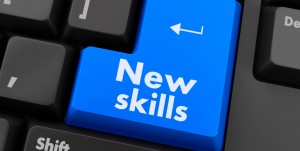You’re not supposed to judge a book by it’s cover. However, the second you walk into an interview, before you’ve said hello and shaken hands, you’ve already made an impression based on what you are wearing. Make sure that first impression is good one by dressing professionally and appropriately for the position you are applying for.
 Know the dress code. If you are unsure what to wear to your interview, call ahead of time and ask about the company’s dress code. You can use this as a guideline for picking out your outfit for the interview. It’s best to dress above the position you are applying for. If the office dress code is casual where most people are in jeans and T-shirts, still step it up a notch to a blouse or button up shirt with nice jeans or slacks.
Know the dress code. If you are unsure what to wear to your interview, call ahead of time and ask about the company’s dress code. You can use this as a guideline for picking out your outfit for the interview. It’s best to dress above the position you are applying for. If the office dress code is casual where most people are in jeans and T-shirts, still step it up a notch to a blouse or button up shirt with nice jeans or slacks.
Hygiene and grooming. Make sure the clothes you choose are clean and free of wrinkles. Wear deodorant, but avoid using an overpowering perfume or cologne — or better yet don’t use any at all. Just make sure you are clean and look tidy. Go light on the makeup, comb your hair and clean up facial hair.
Accessories. Don’t overdo it by wearing large pieces of jewelry or extremely bright ties. Accessories shouldn’t be distracting or look unprofessional. Tip: Choose accessories that can start a conversation. A piece of jewelry from a recent vacation, a small pin that represents your hometown or a tie that represents your interest in music is a great way to get a conversation going. Wear something that shows off your personality while still remaining professional.
Want more tips to help you get the job? Take our Interview Skills course!







